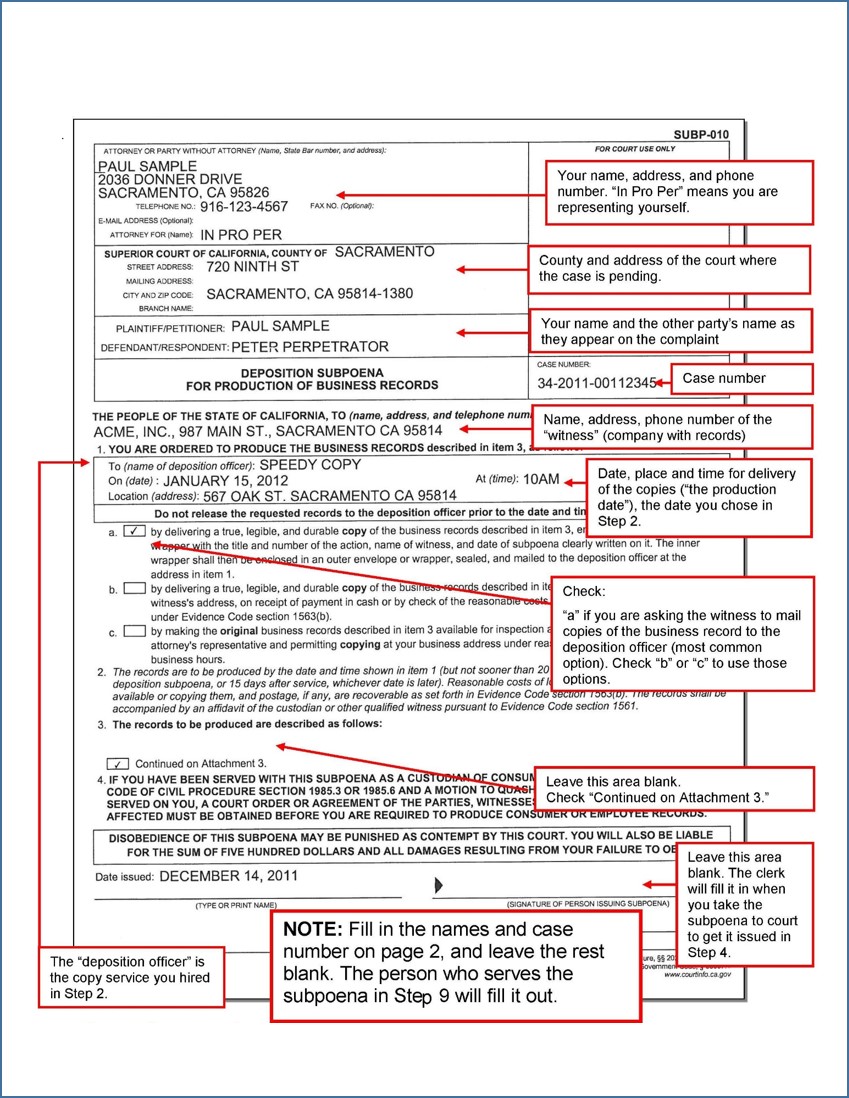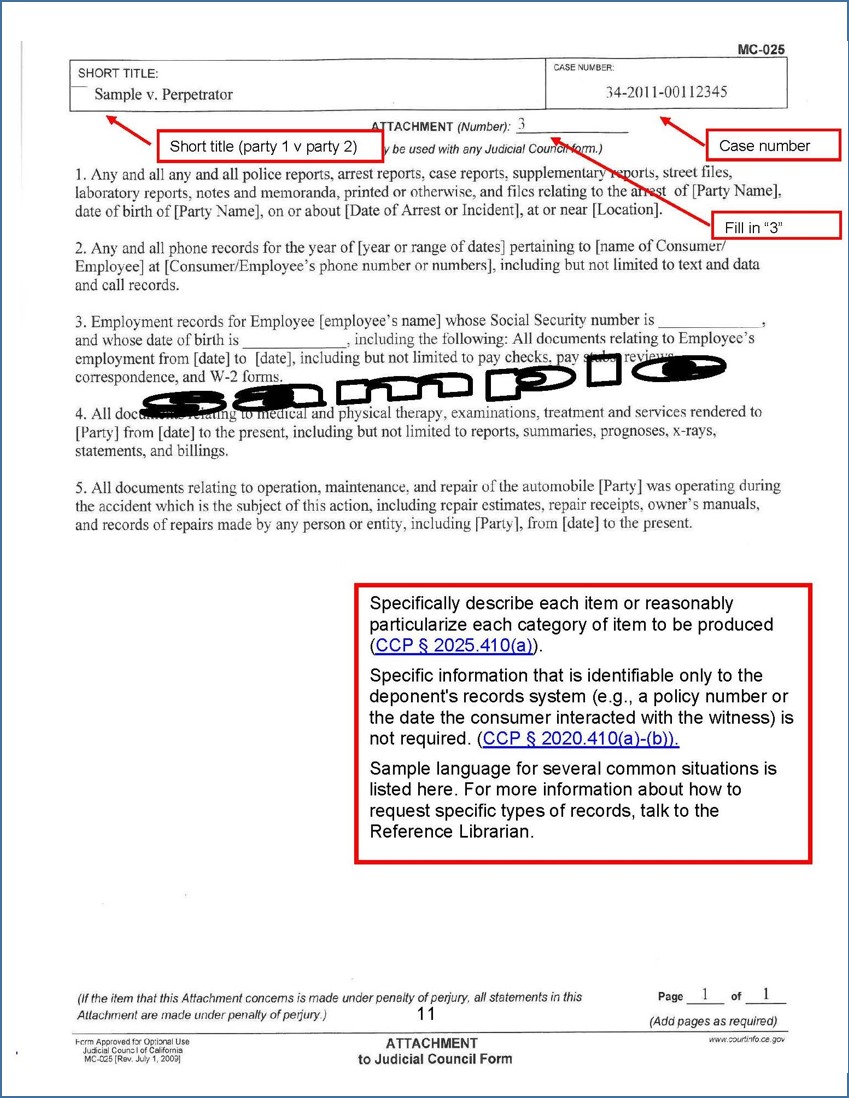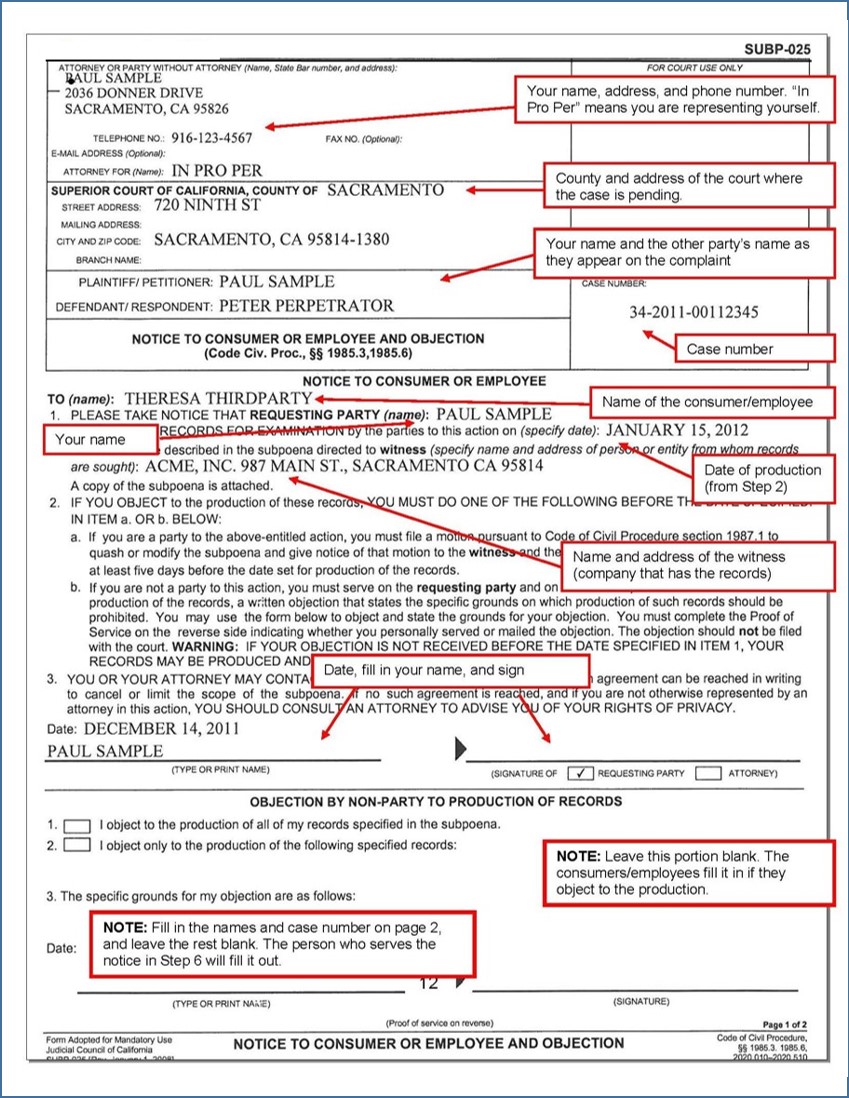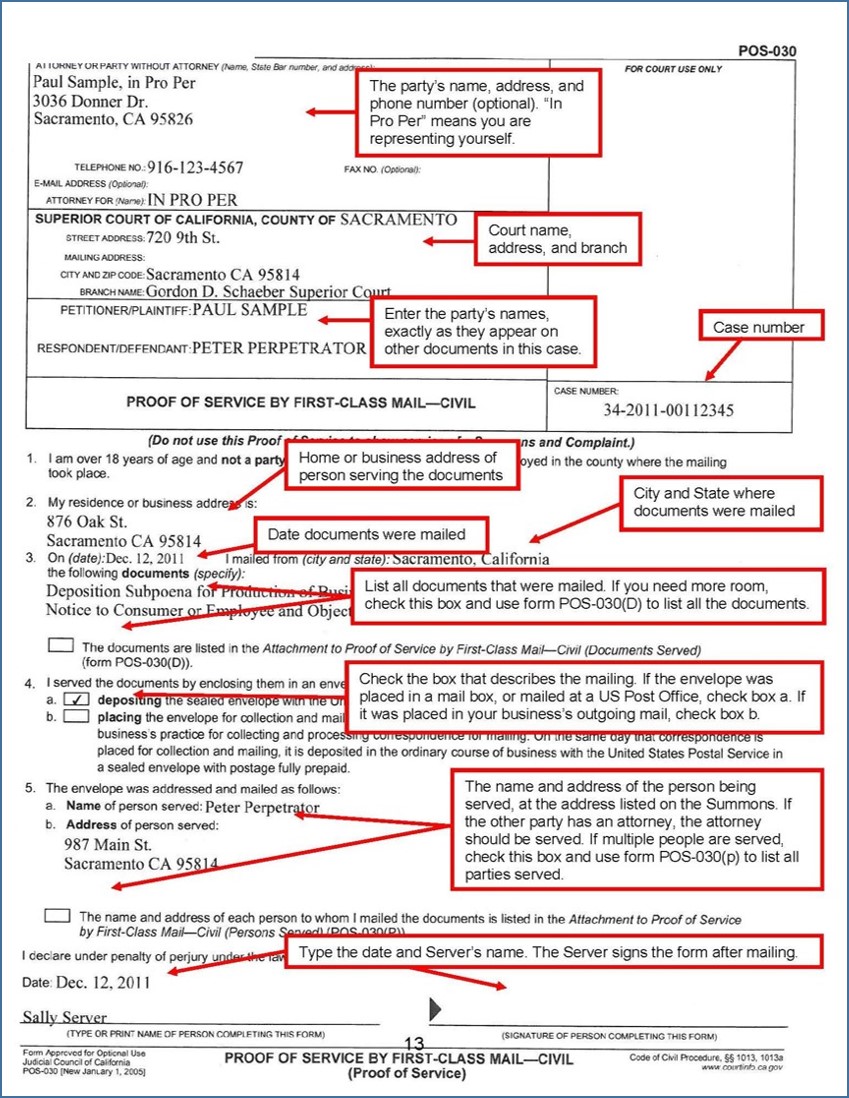- At least 25 days before production date, have the consumer/employee served with Notice to Consumer/Employee and Deposition Subpoena plus Attachment. Have any other parties served, too.
- Wait 10 days for objections. If no objections, move to “3.”
- At least 15 days before the production date, personally serve witness with Notice (showing that consumer/employee was served), Deposition Subpoena plus Attachment, and Proof of Service of Notice and Deposition Subpoena plus Attachment showing service on all parties.
Special Protection for Online & Phone Records
Telephone records, email, social media, and texts may require you to get the consumer’s signature consenting to release. Cal. Public Utilities Code § 2891 and the Federal Stored Communications Act (18 U.S.C. §§ 2701-2712) protect these types of records. A sample authorization form can be found in Cal. Forms of Pleading and Practice, Ch.535, sec. 535:71.
If the consumer will not sign the release voluntarily, you may need to get a court order requiring the consumer to sign it. This process is not covered in this guide.
Step-by-Step Instructions
Set a Date and Location for Production
Select your date at least 15 days away for non-consumer/employee records, or at least 30 days away if the records are consumer/employee records.
Contact a copy service in your area to see if they handle document subpoenas. The service you hire to do this is called the “Deposition Officer.” The Deposition Officer must be must be a professional photocopier registered under California Business & Professions (Bus. & P) Code §§22450–22463, with some exceptions. You may need to contact several to find one that provides this service.
Have the Court Clerk “Issue” Subpoena (Self-Represented Parties Only)
Attorneys can sign subpoenas themselves as “officers of the court” and do not need to take this step.
Take the Deposition Subpoena for Production of Business Records (SUBP-010) to the court where your case is pending to be “issued” (stamped with the court seal). In Sacramento, visit the main courthouse at 720 9 th St., Room 102 (filing room).
Ask the clerk to issue them for you. When the clerk stamps it with the court’s seal, it becomes an official court order. The clerk will probably do it right then. You can ask them to issue several blank subpoena forms if you think you will need them later. There is no fee for this.
When you receive the issued subpoena, make enough copies of the stamped subpoena for yourself, the witness, and all parties. You will serve these copies in later steps.
Complete the Required Forms
You will need two forms to subpoena business records:
- Deposition Subpoena for Production of Business Records (SUBP-010)
- Attachment (MC-025), describing the records you need (you will number this “Attachment 3”)
Completed samples are at the end of this Guide.
NOTE: When you issue a Deposition Subpoena for Production of Business Records (SUBP-010), there are three options for production in the first paragraph of the first page. Option “a” is having the records delivered to the Deposition Officer (generally a copy shop) will be the easiest in most situations. Note that you must arrange to pay the witness their costs before taking delivery of the copies. Talk to your Deposition Officer about how to accomplish this. One option is to ask the Deposition Officer to pay the witness and then bill you.
Under option (b), a Deposition Officer (copy shop employee) goes to witness’s place of business to pick up the copies. Under (c), the subpoenaing party [you] goes to the witness’s place of business and copies the records. (CCP §2020.430).
Most self-represented litigants should choose option (a).
Complete the Additional Form for Consumer/Employee Records
In addition to the forms in Step 3, fill out page 1 of Notice to Consumer or Employee and Objection (SUBP-025). Make enough copies of all forms for yourself, the witness, and all parties. You will serve these copies in later steps.
Serve the Deposition Subpoena and Notice to Consumer or Employee
a. Serve the Consumer/Employee by Mail or Personal Service
- Stamped Deposition Subpoena for Production of Business Records (SUBP-010) and Attachment (MC-025), and
- Notice to Consumer or Employee and Objection (SUBP-025).
You can have this served by mail to the consumer/employee’s last-known address, or by personal service if you are low on time.
The person who is serving the Notice for you must complete the proof of service on the back of the original Notice to Consumer or Employee and Objection (SUBP-025). The server then gives the signed original Notice to you. You will use it in a later step.
b. Serve All Other Parties by Mail
If the only other party is the consumer/employee, skip this step.
Serve by mail all parties (or their attorneys) with copies of
- Stamped Deposition Subpoena for Production of Business Records (SUBP-010) and Attachment (MC-025), and
- Notice to Consumer or Employee and Objection (SUBP-025) (showing the signed proof of service on the back).
Wait for Consumer/Employee to Respond
Wait at least 10 calendar days (5 if you had the consumer personally served) before moving on to Step 7, “Serve the Witness.”
The consumer/employee’s deadline to object is 5 days before the production date. A non-party consumer/employee just needs to fill out the objection on Notice to Consumer or Employee and Objection (SUBP-025). A consumer/employee who is a party needs to file a motion to quash the Subpoena in court.
If the consumer/employee objects or files a motion to quash: the witness is not permitted to respond to your Deposition Subpoena. You may make a Motion to Compel Production (deadline: 20 days after service of the written objection), or file an Opposition to the Motion to Quash, as appropriate. Motions to Quash Subpoenas are not covered in this Guide; see a reference librarian for more information on this process. For more information, see our guide Motion to Compel Discovery Responses.
Serve the Witness (the Company or Agency with the Records) by Personal Service at Least 15 Days before Production Date
a. Serve Witness
Serve these documents at least 15 days before the production date. (CCP § 2020.410(c))
- Deposition Subpoena for Production of Business Records (SUBP-010)
- Attachment (MC-025)
- Notice to Consumer or Employee and Objection (SUBP-025), showing signed proof of service on the back.
- Proof of Service by Mail (POS-030) on all parties (unsigned but otherwise complete).
The server (a person over the age of 18 who is not a party to the case) must personally deliver the required documents on the witness or its representative, along with a check for fees. If the witness is an organization, any officer, director, custodian of records, or any agent or employee authorized by the organization to accept service of a subpoena can be served on behalf of the organization. (CCP § 2020.220.)
The server then signs the proof of service form on the back of the Deposition Subpoena for Production of Business Records (SUBP-010) and returns it to you. Keep this in case you need it for a motion later.
b. Serve parties
In addition, serve all parties by mail with copies of all documents listed above. If they have attorneys, serve the attorneys instead.
The proof of service form should be completely filled out, but not signed. Make a copy of the unsigned proof of service before proceeding.
The server (a person over the age of 18 who is not a party to the case) must then mail a copy of the documents along with a copy of the unsigned proof of service form on the opposing attorney(s) or self-represented litigant(s).
The server then signs the original Proof of Service form, and gives it to you.
Wait for the Documents
You’re done for now. The documents should arrive at the copy service by your chosen production date.
If your Deposition Subpoena is ignored, or you get nothing but a written objection, you may need to file a motion in court to compel the witness to produce the documents. For more information, see our guide Motion to Compel Discovery Responses.
Fees Paid to the Witness:
The witness is entitled to payment of reasonable costs prior to providing the documents to the Deposition Officer. These costs include:
Reproduction costs of $0.10 per page for documents 8 ½” x 14” or less; $0.20 per page for copying documents from microfilm; and actual costs for oversize documents or documents requiring special processing.
Other Costs of clerical costs of $24 per hour per person; actual postage costs; and costs for necessary services of third persons, including retrieval from microfilm.
These costs are paid when the witness delivers the business records and an itemized statement listing costs. Evid C §§ 1563(b)(1), (2), & (3).
If you requested to inspect the original documents at the witness’s location, the witness is entitled to a flat fee of $15, so write a check for the server to take along. Evid C §1563(b)(6).
For Help
For assistance with a business records subpoena, you may want to contact a professional photocopier service to act as Deposition Officer. In some cases, they will do the entire process (forms, service, and copying) for you for a fee. Call a local law office and ask who they use, or look under “Copying and Duplicating Services” or “Attorney Support Services” in the Yellow Pages.
SH@LL (Self-Help at the Law Library) (formerly Civil Self Help Center)
609 9 th Street, Sacramento CA 95814
(916) 476-2731 (Appointment Request Line)
Services Provided: SH@LL provides general information and basic assistance to self-represented litigants on a variety of civil legal issues, including name changes. All assistance is provided by telephone. Visit “What we can help with” for a list of qualifying cases.
Eligibility: Must be a Sacramento County resident or have a qualifying case in the Sacramento County Superior Court.
For More Information
On the Web:
NOLO Law for All: “Formal Discovery: Gathering Evidence for Your Lawsuit”
This respected self-help site offers excellent information on discovery in general.
California Courts: “Getting Evidence for Court”
This pamphlet, provided by the Judicial Council’s website, contains information about preparing evidence for admission in a court trial or hearing.
At the Law Library:
The following books have information about preparing business records subpoenas:
- California Forms of Pleading and Practice KFC 1010 .A65 C3
- California Practice Guide: Civil Procedure before Trial KFC 995 .W45 Chap. 8, Discovery, Sec. 540-555.
- Litigation by the Numbers KFC 995 .G67
Chap.5, Discovery, Sec. 5.3.5.
These books give detailed discussion of the steps needed to use a business records subpoena. Civil Procedure before Trial in particular contains discussion of the applicable statutes and cases.
For examples of the types of documents you may want to request in different types of civil cases, see:
- Deposition Checklists and StrategiesKF 8900 .S33
This book is divided into chapters by type of case (vehicular liability, premises liability, medical malpractice, etc.). Each chapter has a section on “Documents and Exhibits” which lists the types of documents that may be useful in that type of case. - California Points and AuthoritiesKFC 1010. B4 (Ready Reference)
Vol. 8, Chap. 81, Sec. 240-254
Contains information and forms for consumer/employee objections.
Samples
Deposition Subpoena for Production of Business Records


Notice to Consumer or Employee and Objection

Proof of Service by Mail

Worksheet to Determine Dates for Service
Work backwards from the date you want to receive the documents (Date of Production).
- Choose the date for production of documents.
- Count backwards 15 days. If the 15 th day is a holiday or weekend, keep going until you reach a workday. This is the last day the witness can be served. (It is a good idea to serve it a few days early, in case of problems with the service.)
- If you are requesting consumer/employee records: Choose the date you expect to actually serve the witness (on or before the date in step 2).
- Count backwards 10 days from the date you expect to actually serve the witness. Again, if the 10 th day is a holiday or weekend, keep counting backwards until you reach a workday. This is the last day the Consumer/Employee can be served by mail.
If you are short on time, you can save a few days by having the Consumer/Employee personally served. In this case, you only have to count back 5 days from the date you expect to serve the witness.

This material is intended as general information only. Your case may have factors requiring different procedures or forms. The information and instructions are provided for use in the Sacramento County Superior Court. Please keep in mind that each court may have different requirements. If you need further assistance consult a lawyer.